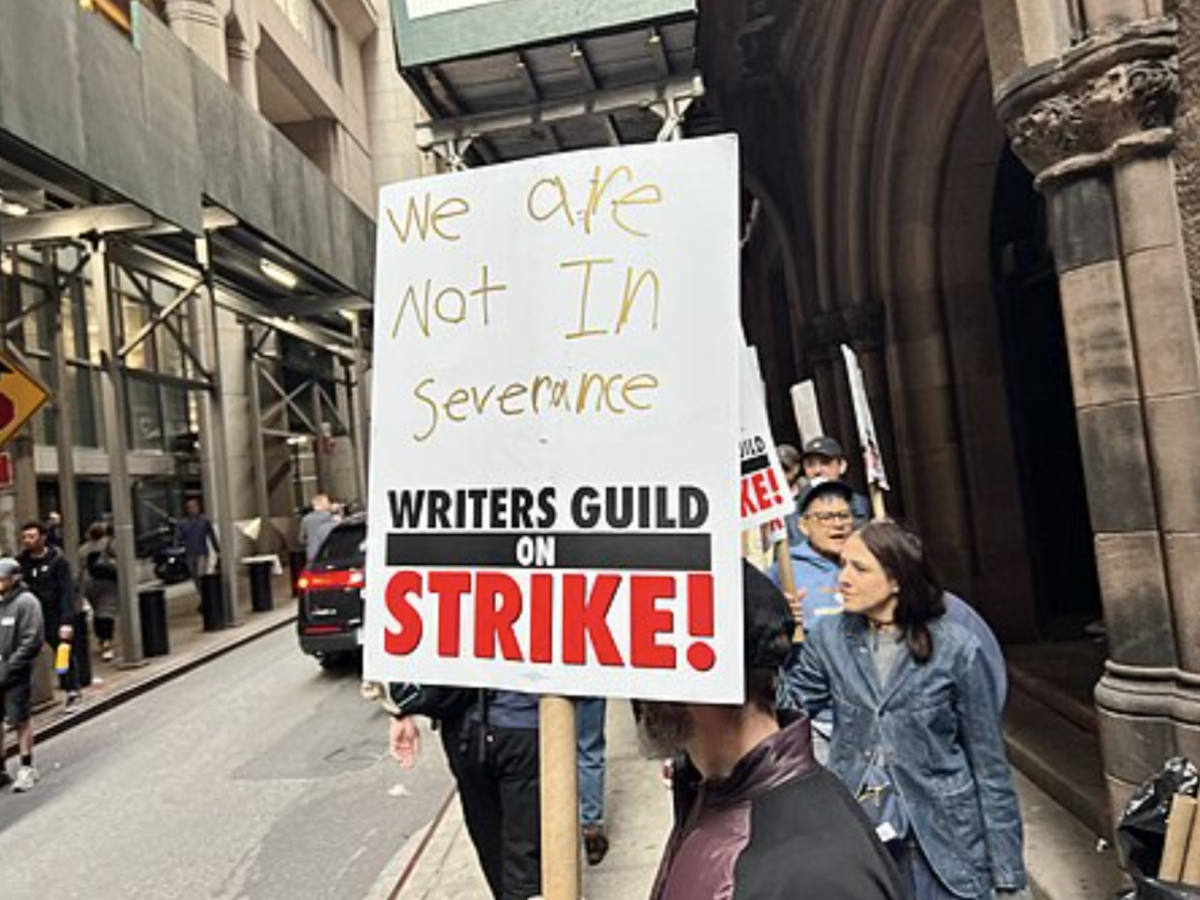The Writer’s Guild of America Strike came to an end after 148 days on Sept. 27, fighting against unfair compensation for screenwriters in the film industry by reaching an agreement with entertainment companies to receive better pay and recognition, with a portion solely dedicated to the role that AI will have in the industry.
The dispute was between the WGA and the Alliance of Motion Picture and Television Producers. The WGA and the AMPTP renegotiate their contract every three years, which entails their compensation for the coming years. Their last contract expired in May, prompting the strike.
As a result, talk shows such as “The Tonight Show”, “Late Night” and “SNL” on NBC, and mainstream TV shows, “Stranger Things” and “The Last of Us” stopped production when the strike started in May.
Over the past decade, the film industry has grown exponentially, making and investing billions of dollars into their services. Pre-pandemic, the industry contributed $504 billion to the US GDP, which makes up for at least 3.2% of the goods and services portion. With this growth, the writers are not receiving compensations that fairly correspond with the money that the industry now has. This strike has provided a platform for screenwriters and their supporters to express their distress and to receive far more recognition. They argue that their jobs require an extreme amount of creativity and expertise, and are the foundation of all films known and loved by the public.
The WGA represents 11,500 writers of TV and film. During the strike, members of the WGA were prohibited from writing, pitching ideas, or discussing any ongoing or future projects with any company that was a part of the AMPTP. The nationwide impact of the strike has exceeded $5 billion, with a $3 billion toll on California’s economy from both the WGA and Screen Actors Guild strike.
An announcement sent to all members of the WGA on Oct. 9 showcased the overwhelming support for the upcoming contract.
“We are pleased to announce that 99% of WGA members have voted in favor of ratifying the 2023 MBA,” wrote Meredith Steihm, WGA President.
On the day of the ratification, most of the MBA minimums for writers that work on multi-episode TV series increased by 5%. On May 2, 2024, it will increase by another 4%, and then another 3.5% in 2025. For streaming content, the writers negotiated an increase of 18% because those shows can be available on streaming platforms for years on end, and the writers weren’t getting paid for reruns the way they used to when cable television was the only avenue used to view shows. The progressive rate increase reflects the predicted growth rate of the industry to ensure that the writers continue to be fairly compensated in proportion to the industry’s development.
The day the strike ended, Steihm had an interview with The Hollywood Reporter, where she described her concerns about the use of AI.
“Instead of trying to negotiate beforehand a world we don’t understand, we retained every single right we have to negotiate for writers, and writers retain every single right they have both under the law and the MBA to protect themselves in circumstances of the companies using our material to train,” said Steihm.
As AI technology advances and becomes more prevalent in our society, it can be used to overtake professions. Cab or Uber drivers may be put out of work due to self driving cars, any customer service job can be replaced, and factory workers will likely not be needed anymore. The vast array of industries that AI has the ability to overshadow can leave millions of people across the world unemployed. Large language models particularly have the potential to directly and negatively impact the writing profession.
Studios can be tempted to use AI to write or rewrite scripts with minimal costs and effort. The WGA has recognized the need to protect and safeguard the intellectual property and creative freedom of the writers, and have thus included regulations around the use of AI within the entertainment industry in the 2023 contract. AI will not be permitted to write or rewrite any screenplay or script unless a writer themself decides to utilize it when performing their services, provided their company consents and they follow any company policies. Each of these regulations ensure that AI will not undermine or take credit for any writer’s work and preserve the profession.
“This was a moment, […] where labor said, ‘We are no longer OK with being ignored.’ It’s not just that strikes are effective, strikes are the only way sometimes to get what labor needs.” explained Steihm.






